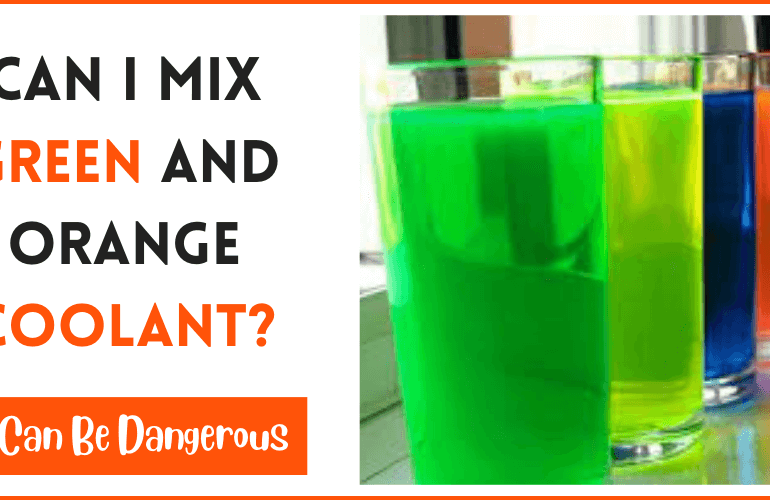

Any vehicle owner who takes an interest in the care and maintenance of their engine will wrestle with the question: can I mix 5w20 and 5w30 oil grades? It’s known that engine oil is the lifeblood of any car, keeping the vital parts lubricated and cool. Moreover, the right oil can maximize performance and extend the lifespan of an engine. In the scenario of accidental oil drainage and mixing, the potential risks and repercussions can be overwhelming.
Can I Mix 5w20 And 5w30?
No, it’s not recommended, you can mix 5w-20 and 5w-30 in emergencies. However, for optimal performance, it’s advisable to stick to the manufacturer’s recommended oil viscosity.
The numbers on motor oil bottles signify the oil’s thickness and its ability to protect your engine at different temperatures. The ‘W‘ refers to the oil’s winter-grade performance, while the number preceding (e.g., ‘5w‘) indicates how the oil will flow when it’s colder. Explore whether can i mix 5w20 and 5w30. The second number (e.g., ‘20‘ or ‘30‘) indicates the oil’s viscosity at high temperatures. Higher numbers mean the oil can better withstand heat and maintain its lubricating properties.
Differences in Viscosity and Composition
5w20 is generally thinner than 5w30.
This difference should translate to easier engine cranking in cold temperature conditions. The thickness difference becomes more pronounced when the engine is hot. 5w30 provides better protection at high temperatures. But, 5w20 might be less prone to burning off, which is a key benefit of a thinner oil. The decision to use 5w20 or 5w30 is often influenced by the automaker. They consider the precise engine design, specification, and tolerances when recommending an oil.
Manufacturer Recommendations
Following the automaker’s advice is crucial. It ensures your engine runs as intended. Additionally, it guarantees the best performance. Variances in engines mean that the most suitable oil for one may not work well in another. For instance, Ford advises the use of 5w20 in their Ford and Lincoln vehicles. On the other hand, Chrysler recommends 5w30. Deviating from these recommendations can have consequences. It may void warranties and compromise the efficiency and longevity of the engine. It’s always best to consult your owner’s manual or check with a dealership to confirm the right oil for your car.
Expert Opinions
Automotive experts stress the importance of sticking to a single type and grade of motor oil.
For modern engines, using a different oil type than recommended can have unseen repercussions. These repercussions might not become clear until much later. Caution is advised due to property differences in detergents or additives when mixed. This could lead to unexpected reactions, potentially damaging seals or gaskets.
Practical Tips
Experts advise against starting the engine if oil mixing occurs. Draining the oil and replacing it with the correct type as soon as possible is the best course of action. Additionally, it’s important to monitor the engine for any abnormal noises. Watch out for warning lights or changes in performance. These can be signs of damage resulting from the oil mix. Always consult a professional mechanic if you’re unsure about how to proceed or suspect that an issue has arisen from mixed oils.
Real-World Experiences
There is no shortage of real-world stories where vehicle owners accidentally mixed oils. Some went unnoticed without any apparent issues arising. Others reported immediate problems, ranging from strange engine noises to complete failure. These experiences emphasize the unpredictability of mixing oils. They highlight the importance of addressing the situation promptly and correctly.
Related Guides:
Is It Okay To Put 5w30 in a 5w20 Engine?


Putting 5w30 in a 5w20 engine is not recommended. This is especially true for newer engines that have tight tolerances and are designed for a specific grade of oil. Using a slightly thicker oil for added protection may be tempting. However, it could lead to problems, such as inadequate lubrication and overheating.
Is 5w20 or 5w30 Better for High Mileage?


For high-mileage vehicles, the choice between 5w20 and 5w30 isn’t straightforward. Some might argue that 5w20’s thinner viscosity helps it reach the engine’s moving parts faster. This contributes to better fuel economy and wear protection. On the other hand, 5w30’s broader temperature range can provide a cushion of protection. Additionally, its additional film strength is beneficial. This is particularly true for engines with wear, especially in high-temperature conditions.
Why Is 5w30 Better Than 5w20?


The ‘better’ oil is context-dependent, but 5w30’s broader temperature range, potentially better high-temperature protection, and ability to cushion engines with wear set it apart from 5w20 in certain conditions. 5w20 may provide better fuel economy due to its thinner viscosity, making it ‘better’ in terms of environmental friendliness and cheaper fuel costs.
Does 5w30 Burn Slower Than 5w20?
The ‘better’ oil is context-dependent, but 5w30’s broader temperature range, potentially better high-temperature protection, and ability to cushion engines with wear set it apart from 5w20 in certain conditions. 5w20 may provide better fuel economy due to its thinner viscosity. This makes it ‘better’ in terms of environmental friendliness and cheaper fuel costs.
Conclusion:
In the great debate of whether can i mix 5w20 and 5w30 oils, caution is the watchword. While some may argue the safety of mixing oils in emergencies, the consensus is that it’s not worth the risk. For vehicle owners serious about engine health and performance, the best advice is to stick to a regular maintenance schedule.
This includes using the oil type and grade recommended by the automaker. With diligent care, you can improve not only the longevity of your engine but also the peace of mind. This comes with knowing you’re doing all you can to protect your investment.
References:
- By Pradeep, Can I mix 5W20 oil with 5W30 oil? Posted on Aug 16, 2023.
- By gregk24, can you mix a 5w20 and 5w30??? Posted on May 9, 2013.
- By u/Thow69away, What happens if you accidentally mix 5w-30 with 5w-20 oil? Posted 3 years aago.



